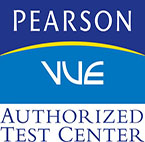
Getting Started in Network Administration Leading to Network Engineer Role
What is a Network Engineer?
Network engineers are responsible for maintaining and operating an organization’s computer networks. They have a knack for troubleshooting technologies. They do the following tasks:
- Configuring network hardware like servers, routers, and switches
- Upgrading and repairing computer networks
- Troubleshooting network issues
- Assisting network architects with the design of network models
- Deploying and updating software
- Managing servers and their operating systems
- Implementing security measures and basic testing
- Managing cloud and physical network storage
As a network engineer students will need strong critical thinking skills.
“[The] ability to take the concepts you’ve learned in school and understand how they work and affect other concepts is the bread and butter of being a network administrator,” says Brad Meyer, systems administrator at TechnologyAdvice. It is also important to have strong time management and a drive to learn more in the field.

Where to start on your Network Engineer career pathway?
First, Discovery phase.
A student must determine a career path in the discovery phase. Ask yourself the following questions:
- What do I like to do?
- What do I hate doing?
- What experience do I have in Information Technology?
In order to figure out the questions above try the following to help guide you:
- Watch Youtube videos to help you determine a path.
- Study different areas of security to find out what interests you.
- Seek entry-level jobs to get your foot in the door. Don’t worry about pay grade.

Second, Pick A Path based on what you find.
Do a job search on what you want to set your goal on. Look at the job description to help you determine what areas to specialize in. It will help you know what certifications the job requires and what experience they ask for. Then you can look at our schedule of classes and get ready to practice to pass the certifications.
Laying the foundation of your network admin role
Prem Jadhwani, CEO and President at Intellectual Point, holds over 150 IT certifications. At one of our free Digital Natives Meetups, he laid out the ideal foundational mapping of the career paths and certifications to be considered for cybersecurity jobs. No matter what career path you’re considering, most cybersecurity jobs require certifications and advanced training.

The most common certifications include:

These are a few Cisco network certifications:
- Cisco Certified Entry Networking Technician (CCENT)
- Cisco Certified Technician (CCT)
- Cisco Certified Network Associate (CCNA)
- Cisco Certified Network Professional Level (CCNP)
- Cisco Certified Internetwork Expert Routing and Switching (CCIE Routing and Switching)
- Cisco Certified Design Expert (CCDE)
Other specific technical skills you need will vary based on the area you choose to focus on.
- Plan, implement and monitor computer networks
- Understand the technical demands of their employer’s business
- Comprehensive knowledge of network protocols and services such as TCP/IP, DNS, and DHCP

Companies that are hiring Network Administrators and Engineers
You can work for any company with its own large IT systems or work for companies that outsource their complete IT systems to specialists. Experienced network engineers are in high demand these days, and working as a freelancer means you can work from home and offer your services to businesses in different cities – or even different countries.
The average salary for network engineers in the USA is $71,097. However, this may be dependent on your experience and the size of the company you work for, as the minimum salary is estimated to be $47,000 with the maximum at around $102,000.

Network engineer consultant salaries:
- Junior: $ 47,000
- Average: $ 71,000
- Senior: $ 102,000
Typical industries that are hiring network administrators include:
- Banks and financial institutions
- Government authorities
- Transport companies
- Companies in retail
- IT consultancies and agencies

Start with your immediate network of friends to start a network engineer career
Practice, practice and practice your skills
There is no better way to get better at your skills than to practice. You can start with many free tools to get your feet wet. It is important to keep the drive to want to learn more and keep your skills up to date with the current trends.
Some places you can practice your tech skills:
Schedule to speak with a career mentor.
No cost and no obligation mentoring.






























